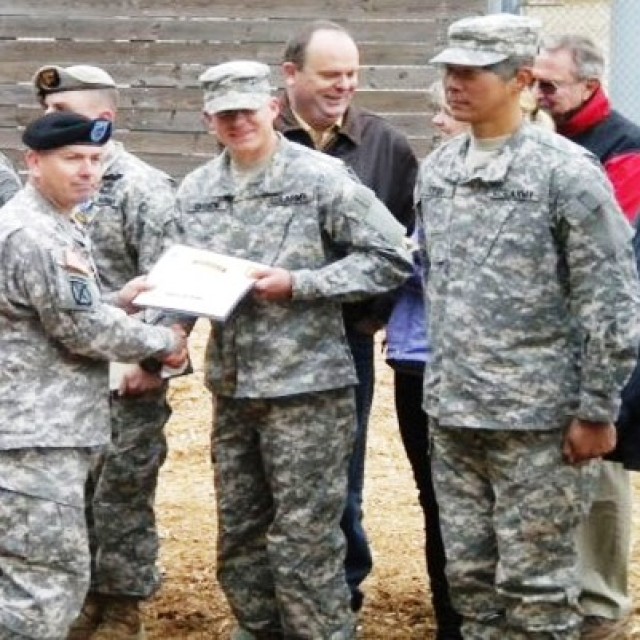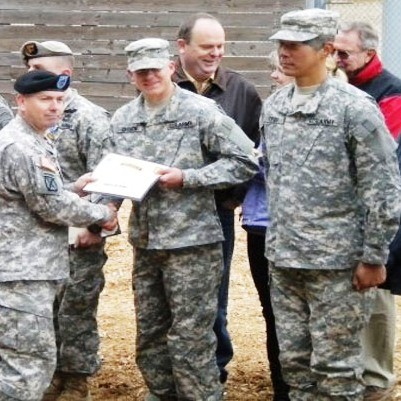FORT RUCKER, Ala. -- Despite climbing and rappelling Georgia mountains, waddling through Florida swamps in late fall and completing several 19-hour days without a break, 1st Lt. Sean Curnow excelled at Ranger training to win two top awards.
Even though the D Company, 1st Battalion, 145th Aviation Regiment flight student encountered mental and physical anguish, he followed the Army Ranger creed and pressed on. Curnow garnered the Ralph Puckett and William O. Darby awards at his Dec. 11 Ranger School graduation at Fort Benning, Ga.
Ranger staff gives the Ralph Puckett Award, named after a retired colonel, to the officer honor graduate. Curnow received the William O. Darby Award for displaying the best leadership. He said his physical conditioning allowed him to finish many runs ahead of his fellow Soldiers, which helped him earn the awards.
Curnow is believed to be the second Aviator to win awards at Ranger training.
"I'm proud and relieved. I didn't want to be the Aviator (who) failed," he said, noting he was proud to represent the Aviation Branch well.
"He is a great example of the quality of officer we currently have attending flight school," said Lt. Col. Mikael Ash, 1st Bn., 145th Avn. Regt. commander.
Curnow said he decided to attend Ranger School for the challenge of completing the numerous strenuous tasks. Soldiers attending Ranger School endure long days of physical work in adverse conditions. Soldiers also develop good tactical plans for combat during the course.
Among the tasks were a 12-mile road march, obstacle courses, a physical training test followed by a 5-mile run, patrolling mountains and rappelling, rock climbing and simulated swamp warfare outside Eglin Air Force Base, Fla. Ranger training lasts 62 days, and unlike his survival, evasion, resistance and escape training here, there were no breaks, Curnow said.
Even though Curnow calls Colorado home, he said battling the cold weather proved to be the most difficult element, blaming an acclimation to Fort Rucker's climate for the problem.
The training provided a mental challenge being away from home, but letters received from home buoyed his focus and emotions.
Since Army Aviation exists to support ground troops, Curnow gained a better perspective of what they experience in combat.
"I've realized that the Army we work for is full of amazing guys. They never give up. Their mentality rubbed off on me," he said.
Curnow provides an inspirational example for all flight students, Ash said.
"An officer has to have the desire to attend the school, and they go through a rigorous physical training preparation and interview process," he said. "They must dedicate their own time to do this in addition to carrying the normal flight school training schedule."


Social Sharing